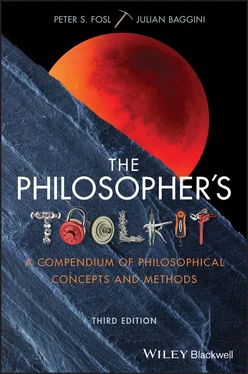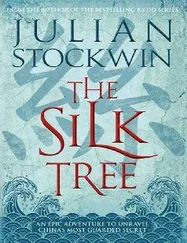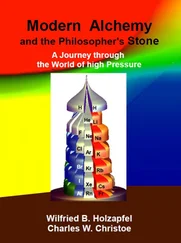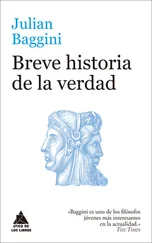The main problem, philosophically speaking, thinkers face is in establishing that it is in fact impossible for any candidate for certainty to have a different truth value. Sceptical thinkers have been extremely skillful in showing how virtually any claim might possibly be false even though it appears to be true (or possibly true though it appears to be false). In the wake of sceptical scrutiny, many agree that absolute certainty in advancing truth claims remains unattainable. One reason for this is the question of whether or not one must be certain that one is certain. (Can you be sure that you’re really sure?)
These are serious though perhaps not insurmountable problems for certainty. For many they present deep sceptical trouble for anyone interested in apprehending truth. On the other hand, clearly not all that’s true is certain. So, perhaps certainty isn’t required for making truth claims or claims to having acquired knowledge. Is there a way to leave the problems of certainty behind and still confidently determine uncertain truths? What is the next best thing if we give up on certainty? To give a proper answer to this question would require a much larger study of epistemology or the theory of knowledge. But for the sake of our concerns here, consider the answer that’s most commonly advanced: probability .
Probability is the natural place to retreat to if certainty becomes intolerably problematic. What is merely probable also seems the largest fraction of human epistemic life. As John Locke writes in his 1689 Essay Concerning Human Understanding : ‘the greatest part of our concernments’ are ‘only the twilight, as I may so say, of probability’ (4.14.2). As a refuge, however, probability is rather like the house of sticks to which the little pig flees when the wolf arrives at the door of his straw house. Probability faces vulnerabilities of its own.
Objective and subjective probability
We can distinguish between objective and subjective probability. Objective probability is where what will happen is genuinely indeterminate. Radioactive decay could be one example. For any given atom of a radioactive material, the probability of it decaying over the period of its half‐life is 50–50. This means that, if you were to take ten such atoms, it is likely that five will decay over the period of the element’s half‐life, while five will not decay. On at least some interpretations in physics, it’s genuinely indeterminate which atoms will fall into which category.
Subjective probability, on the other hand, refers to cases where there may be no actual indeterminacy, but some particular mind or set of minds makes a probability judgement about the likelihood of some event. These subjects do so because they lack complete information about the causes that will determine the event. Their ignorance requires them to make a probabilistic assessment, usually by assigning a probability based on the number of occurrences of each outcome over a long sequence in the past.
So, for example, if we toss a coin, cover it, and ask you to bet on heads or tails, the outcome has already been determined. Since you don’t know what it is, you have to use your knowledge that heads and tails over the long run fall 50–50 to assign a 50 per cent probability that it’s a head and a 50 per cent probability that it’s a tail. If you could see the coin, there would be no 50–50 about it. You’d know the side that’s up with, in fact, 100 per cent certainty.
The odds set by gamblers and handicappers at horse races are also species of subjective probability. The posted odds record simply what the many people betting on the race subjectively believe about the outcome, not the real chance of any horse’s crossing the finish line first.
If you have a valid deductive argument, then its conclusion is often said to follow from the premises with certainty. Many inquirers, however, demand not only that conclusions follow with certainty but that the conclusions themselves be certainly true. Consider the difference between the following arguments:
1 If it rained last night, England will probably win the match.
2 It rained last night.
3 Therefore, England will probably win the match.
1 It’s certainly true that no parallel lines intersect.
2 These two lines are parallel.
3 Therefore, these two lines certainly do not intersect.
The conclusion of the first argument clearly enters only a probable claim. The conclusion of the second argument, in contrast to the first, enters a certain claim. But here’s the rub: both examples present valid deductive arguments. Both arguments possess valid forms. Therefore, in both arguments the conclusion follows with certainty – i.e. the truth of the premises guarantees the truth of the conclusion – even though the content of one conclusion enters merely a probable claim, while that of the other enters a claim of certainty.
You must therefore distinguish between (1) whether or not the conclusion of an argument follows from the premises with certainty or some probability, and (2) whether or not the conclusion of an argument advances a statement the content of which concerns matters of probability or certainty.
But what about philosophical theories? It would seem that if certainty in philosophical theories were attainable, there would be little or no dispute among competent philosophers about which are true and which false – but, in fact, there seems to be a lot of dispute. Does this mean that the truth of philosophical theories is essentially indeterminate? Is deep disagreement a fundamental characteristic of philosophical inquiry?
Some philosophers would say no. For example, they would say that although there remains a great deal of dispute, there is also near unanimous agreement among philosophers on many things – for example, that Plato’s theory of metaphysical forms is false and that Cartesian mind–body dualism is untenable.
Others of a more sceptical bent are, if you’ll pardon the pun, not so certain about the extent to which anything has been proven, at least with certainty, in philosophy. Accepting a lack of certainty can from their point of view be seen as a matter of philosophical maturity.
1 1.2 Deduction
2 1.4 Validity and soundness
3 1.5 Invalidity
4 1.9 Axioms
5 1.12 Tautologies, self‐contradictions, and the law of non‐contradiction
Ludwig Wittgenstein (1969). On Certainty, §115, §341
* Barbara J. Shapiro (1983). Probability and Certainty in Seventeenth‐Century England
Peter Klein (1992). Certainty. In: A Companion to Epistemology (eds J. Dancy and E. Sosa), 61–64
* D.H. Mellor (2005). Probability: A Philosophical Introduction
* Alan Hájek (2019). Interpretations of probability. In: The Stanford Encyclopedia of Philosophy (ed. Edward N. Zalta), Fall 2019 edn
1.12 Tautologies, self‐contradictions, and the law of non‐contradiction
Tautology and self‐contradiction fall at opposite ends of a spectrum: the former is a sentence that’s necessarily true, and the latter a sentence that’s necessarily false. Despite being in this sense poles apart, they’re actually intimately related.
In common parlance, tautology is a pejorative term used to deride a claim because it purports to be informative but in fact simply repeats the meaning of something already understood. For example, consider: ‘The criminal has broken the law’. This statement might be mocked as a tautology since it tells us nothing about the criminal to say he has broken the law. To be a lawbreaker is precisely what it means to be a criminal.
Читать дальше












